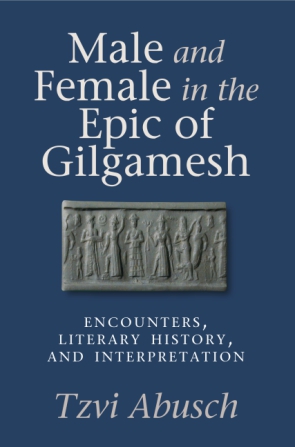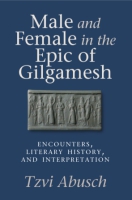
Male and Female in the Epic of Gilgamesh
Encounters, Literary History, and Interpretation
Tzvi Abusch
Male and Female in the Epic of Gilgamesh
Encounters, Literary History, and Interpretation
Tzvi Abusch
“On a literary-critical level, Abusch has given us much to think about and has presented a plausible, if uncertain, reconstruction of the Epic’s long and complicated history. . . I can certainly affirm Abusch’s statement that the basic conflict here “is that between the extraordinary and the normal” (p. 131). However gifted a person might be, he or she must come to terms with the constraints inherent in the human condition. But I would hold that this lesson of the Epic applies not only to a semi-divine ruler, but to any person, which helps to account for the great popularity of the tale(s) of Gilgamesh—in the ancient Near East and in the present day.”
- Description
- Reviews
- Table of Contents
The studies gathered here all demonstrate Tzvi Abusch’s approach to ancient literature: to make use of the tools of literary, structural, and critical analysis in service of exploring the personal and psychological dimensions of the narration. The author focuses especially on the encounters between males and females in the story. The essays are not only instructive for understanding the Epic of Gilgamesh, they also serve as exemplary studies of ancient literature with a view to investigating streams of commonality between ancient times and ours
“On a literary-critical level, Abusch has given us much to think about and has presented a plausible, if uncertain, reconstruction of the Epic’s long and complicated history. . . I can certainly affirm Abusch’s statement that the basic conflict here “is that between the extraordinary and the normal” (p. 131). However gifted a person might be, he or she must come to terms with the constraints inherent in the human condition. But I would hold that this lesson of the Epic applies not only to a semi-divine ruler, but to any person, which helps to account for the great popularity of the tale(s) of Gilgamesh—in the ancient Near East and in the present day.”
Preface
Introduction
Sources
Chapter 1. Ishtar’s Proposal and Gilgamesh’s Refusal: An Interpretation of The Gilgamesh Epic, Tablet VI, Lines 1–79
Chapter 2. Gilgamesh’s Request and Siduri’s Denial, Part I: The Meaning of the Dialogue and Its Implications for the History of the Epic
Chapter 3. Gilgamesh’s Request and Siduri’s Denial, Part II: An Analysis and Interpretation of an Old Babylonian Fragment about Mourning and Celebration
Chapter 4. Mourning the Death of a Friend: Some Assyriological Notes
Chapter 5. The Epic of Gilgamesh and the Homeric Epics
Chapter 6. The Development and Meaning of the Epic of Gilgamesh: An Interpretive Essay
Chapter 7. The Courtesan, the Wild Man, and the Hunter: Studies in the Literary History of the Epic of Gilgamesh
Chapter 8. Hunting in the Epic of Gilgamesh: Speculations on the Education of a Prince
Chapter 9. The Tale of the Wild Man and the Courtesan in India and Mesopotamia: The Seductions of Ṛśyaśṛṅ;ga in the Mahābhārata and Enkidu in the Epic of Gilgamesh (coauthored with Emily West)
Abbreviations
Bibliography
Index of Citations
Mailing List
Subscribe to our mailing list and be notified about new titles, journals and catalogs.



